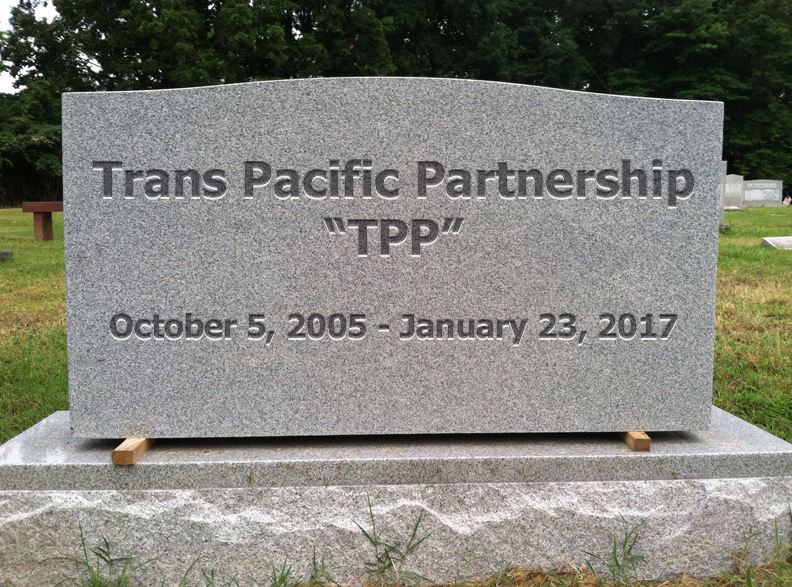 R.I.P.
R.I.P.
Jan 24, 2017
WASHINGTON, DC -- President Trump yesterday followed through on a key campaign promise and sent a Memorandum to the Office of the U.S. Trade Representative (USTR) instructing the agency to inform the 11 other Trans Pacific Partnership (TPP) partners that the United States is withdrawing from the agreement and any TPP-related negotiations. This action effectively stops the agreement as negotiated in 2015 because U.S. enactment is necessary for the agreement to enter into legal force. USA Rice considered the TPP as deficient, and did not adopt a position on the agreement pending assurances on the reported gains for U.S. rice, primarily in Japan.
The memorandum also stated the administration’s intention to deal one-on-one with other countries in bilateral trade negotiations, and instructed USTR “…to begin pursuing, wherever possible, bilateral trade negotiations to promote American industry, protect American workers, and raise American wages.”
“The economic health of the U.S. rice industry is heavily dependent on exports, and strong trade deals like the North America Free Trade Agreement and the U.S.-Colombia agreement bring real benefits to our producers and marketers,” said Carl Brothers, COO Riceland Foods Inc. and chairman of the USA Rice International Trade Policy (ITP) Committee. “We will engage with the new administration and press for improved access in key markets like Japan and the EU through trade agreements that work for rice.”
U.S. withdrawal from the TPP does not affect Japan’s existing access for imported rice, and Japan is consistently among the top five export destinations for U.S. rice. “U.S. rice faces structural obstacles in Japan, and we support negotiation of a trade agreement with Japan that improves the quality of our access in addition to shipping more U.S. rice to that country,” said Michael Rue, California producer and vice chairman of the ITP Committee.
Brothers added, “Access for U.S. rice in the EU is constrained by discriminatory tariffs and tariff rate quotas, and real growth can occur only as a result of a trade agreement that brings down EU duties on U.S. rice.”
Various media indicate that the prime ministers of Japan and the United Kingdom will meet with President Trump separately in Washington, D.C. late this week, and trade is reportedly on the agenda of the visiting leaders.